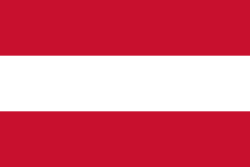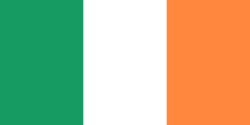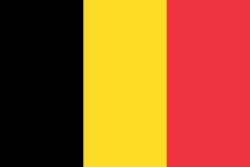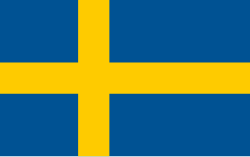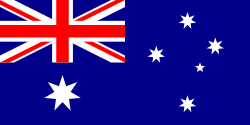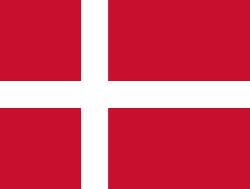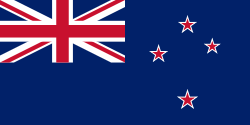The Brain Prize
| The Brain Prize | |
|---|---|
| Uddeler | Lundbeckfonden |
| Pris | DKK 10 millioner |
| Uddelingssted | International pris uddelt i Danmark |
| Hyppighed | Årligt |
| Hjemmeside | https://www.lundbeckfonden.com/thebrainprize/ |
The Brain Prize er en international hjerneforskningspris, der årligt uddeles af Lundbeckfonden til en eller flere forskere, der har udmærket sig ved et ekstraordinært bidrag til hjerneforskningen.[1] Prisen er på 10 mio. danske kroner og er verdens største hjerneforskningspris.[2] Prisen anerkender internationale, originale og indflydelsesrige fremskridt inden for alle områder af neurovidenskaben, herunder grundlæggende forskning i molekylære, cellulære, fysiologiske og farmakologiske mekanismer, undersøgelser af adfærd og kognition, fremskidt inden for teknologi til overvågning af nervesystemet og klinisk forskning om årsager, behandling og forebyggelse af neurologiske og psykiatriske lidelser.[3]
Prismodtagerne vælges af eksperter inden for hjerneforskning, som besidder relevant og omfattende viden på området, og som er respekterede af det internationale videnskabelige samfund.[4]
Vinderne skal efter kåringen være til rådighed for dansk hjerneforskning det efterfølgende år, således at danske hjerneforskere får mulighed for at lære af internationale topforskere.[5]
Historie
Prisen blev første gang uddelt i 2011 med det formål at fremme interessen for hjerneforskning og stimulere dansk forskning ved at styrke samspillet med europæisk hjerneforskning og det videnskabelige grundlag for fremskidt inden for forebyggelse, diagnose og behandling af sygdomme i hjernen og nervesystemet.[3]
Udvælgelseskomité[4]
- Richard Morris (formand). Professor, University of Edinburgh, Storbritannien
- Story C. Landis (næstformand). Dr., Ph.D., USA
- Joseph Coyle. Professor, McLean Hospital, Harvard, USA
- Geoffrey A. Donnan. Professor og leder, The Florey Institute of Neuroscience and Mental Health, Melbourne, Australien
- Mu-ming Poo, Professor, CAS Shanghai, China
- Ole Petter Ottersen, Karolinska Institutet, Sweden
- Philip Scheltens. Professor og leder, Alzheimer Center, Nederlandene
- Irene Tracey. Professor, Oxford Universitet, John Radcliffe Hospital, Storbritannien
Oversættelse ønskes. Dette afsnit er delvis på et andet sprog end dansk. |
Prismodtagere
| År | Modtagere | Land | Motivation |
|---|---|---|---|
| 2011[6] | Péter Somogyi | ”For their wide-ranging, technically and conceptually brilliant research on the functional organization of neuronal circuits in the cerebral cortex, especially in the hippo¬campus, a region that is crucial for certain forms of memory"[7] | |
| Tamás Freund | |||
| György Buzsáki | |||
| 2012[2] | Christine Petit | "For their unique, world-leading contributions to our understanding of the genetic regulation of the development and functioning of the ear, and for elucidating the causes of many of the hundreds of inherited forms of deafness"[8] | |
| Karen Steel | |||
| 2013[9] | Ernst Bamberg | "For their invention and refinement of optogenetics. This revolutionary technique allows genetically specified populations of neurons to be turned on or off with light, offering not only the ability to elucidate the characteristics of normal and abnormal neural circuitry but also new approaches to treatment of brain disorders"[10] | |
| Edward Boyden | |||
| Karl Deisseroth | |||
| Peter Hegemann | |||
| Gero Miesenböck | |||
| Georg Nagel | |||
| 2014[11] | Giacomo Rizzolatti | "For their pioneering research on higher brain mechanisms underpinning such complex human functions as literacy, numeracy, motivated behaviour and social cognition, and for their efforts to understand cognitive and behavioural disorders"[12] | |
| Stanislas Dehaene | |||
| Trevor W. Robbins | |||
| 2015[13] | Winfried Denk | "For invention, refinement and use of two-photon microscopy to provide detailed, dynamic images of activity in individual nerve cells, dendrites and synapses, thereby transforming the study of development, plasticity and functional circuitry of the brain"[14] | |
| Arthur Konnerth | |||
| Karel Svoboda | |||
| David W. Tank | |||
| 2016[15] | Timothy Bliss | "For their ground-breaking research on the cellular and molecular basis of Long-Term Potentiation and the demonstration that this form of synaptic plasticity underpins spatial memory and learning"[16] | |
| Graham Collingridge | |||
| Richard G. Morris | |||
| 2017[17] | Wolfram Schultz | "For their multidisciplinary analysis of brain mechanisms that link learning to reward, which has far-reaching implications for the understanding of human behaviour, including disorders of decision-making in conditions such as gambling, drug addiction, compulsive behaviour and schizophrenia"[18] | |
| Peter Dayan | |||
| Ray Dolan | |||
| 2018[19] | Bart De Strooper | "For their groundbreaking research on the genetic and molecular basis of Alzheimer’s disease, with far-reaching implications for the development of new therapeutic interventions as well as for the understanding of other neurodegenerative diseases of the brain'" | |
| Michel Goedert | |||
| Christian Haass | |||
| John Hardy | |||
| 2019[19] | Marie-Germaine Bousser Elisabeth Tournier-Lasserve Anne Joutel Hugues Chabriat | "For 'their groundbreaking research on the clinical, genetic, cellular and molecular basis of a brain syndrome, known as CADASIL. Their achievement is a beautiful illustration of a clinical observation leading to fundamental discoveries about brain disease with implications for the understanding of causes of dementia, migraine and stroke." | |
| 2020[19] | Huda Zoghbi | "For their fundamental and pioneering work on Rett syndrome. Their work established the importance of epigenetic regulation in both brain development and the maintenance of normal adult brain function. It also points to novel opportunities for treatment of this and other neurodevelopmental disorders". | |
| Adrian Bird | |||
| 2021 | Lars Edvinsson | "for their groundbreaking work on the causes and treatment of migraine" | |
| Peter Goadsby | |||
| Michael A. Moskowitz | |||
| Jes Olesen | |||
| 2022 | Silvia Arber | "for having revolutionized our understanding of the neuronal cell types and circuits underlying movement."[20] | |
| Ole Kiehn | |||
| Martyn Goulding | |||
| 2023 | Michael E. Greenberg | "for having revolutionized our understanding of how neurons regulate the thousands of different proteins – the building blocks of life, that are needed to support brain development, plasticity and maintenance."[21] | |
| Christine Holt | |||
| Erin Schuman | |||
| 2024 | Haim Sompolinsky | "for having made pioneering contributions to the field of computational and theoretical neuroscience and have made seminal contributions to our understanding of the principles that govern the brain’s structure, dynamics and the emergence of cognition and behaviour". | |
| Larry Abbott | |||
| Terrence Sejnowski |
Noter
- ^ H.K.H. Kronprinsen forestår overrækkelsen af The Brain Prize 2017
- ^ a b To europæiske forskere modtager The Brain Prize
- ^ a b "Arkiveret kopi". Arkiveret fra originalen 14. september 2017. Hentet 14. september 2017.
- ^ a b "Arkiveret kopi". Arkiveret fra originalen 14. september 2017. Hentet 14. september 2017.
- ^ "Arkiveret kopi". Arkiveret fra originalen 14. september 2017. Hentet 14. september 2017.
- ^ Stor dansk hjernepris til ungarske forskere
- ^ "Prize Winners 2011 - Lundbeckfonden - The Brain Prize". www.thebrainprize.org (engelsk). Arkiveret fra originalen 14. september 2017. Hentet 2017-09-15.
- ^ "Prize Winners 2012 - Lundbeckfonden - The Brain Prize". www.thebrainprize.org (engelsk). Arkiveret fra originalen 15. september 2017. Hentet 2017-09-15.
- ^ »And the Oscar goes to … optogenetik!«
- ^ "Prize Winners 2013 - Lundbeckfonden - The Brain Prize". www.thebrainprize.org (engelsk). Arkiveret fra originalen 14. september 2017. Hentet 2017-09-15.
- ^ Og hjerne-Oscar’en går til… det menneskelige sind!
- ^ "Prize Winners 2014 - Lundbeckfonden - The Brain Prize". www.thebrainprize.org (engelsk). Arkiveret fra originalen 14. september 2017. Hentet 2017-09-15.
- ^ The Brain Prize: Revolutionerende teknologi vinder verdens største hjernepris
- ^ "Prize Winners 2015 - Lundbeckfonden - The Brain Prize". www.thebrainprize.org (engelsk). Arkiveret fra originalen 5. januar 2019. Hentet 2017-09-15.
- ^ Verdens største hjernepris til forskning i hukommelsens mysterier
- ^ "Prize Winners 2016 - Lundbeckfonden - The Brain Prize". www.thebrainprize.org (engelsk). Arkiveret fra originalen 14. september 2017. Hentet 2017-09-15.
- ^ Prisvindende forskning: Vi lærer gennem belønning
- ^ "The Brain Prize Winners 2017 - Lundbeckfonden - The Brain Prize". www.thebrainprize.org (engelsk). Arkiveret fra originalen 4. juli 2017. Hentet 2017-09-15.
- ^ a b c "Arkiveret kopi". Arkiveret fra originalen 7. august 2020. Hentet 21. juli 2020.
- ^ "Laureates 2022". Arkiveret fra originalen 5. april 2023. Hentet 2. november 2023.
- ^ Laureates 2023
Medier brugt på denne side
Flag of Austria with the red in the Austrian national colours which was official ordered within the Austrian Armed Forces (Bundesheer) in the characteristic “Pantone 032 C” (since May 2018 the Red is ordered in the characteristic “Pantone 186 C”.)
Forfatter/Opretter: Jesse Burgheimer, Licens: CC BY-SA 3.0
This is a two-way "translation arrow" icon, drawn by myself in the style of, and modeled after Merge-arrow.svg. It is meant to more accurately illustrate the process of translating from one regional written language (in this case, a Latin 'A') to another region's written language (a Japanese 'あ' Hiragana symbol), and that this process can travel in either direction.








